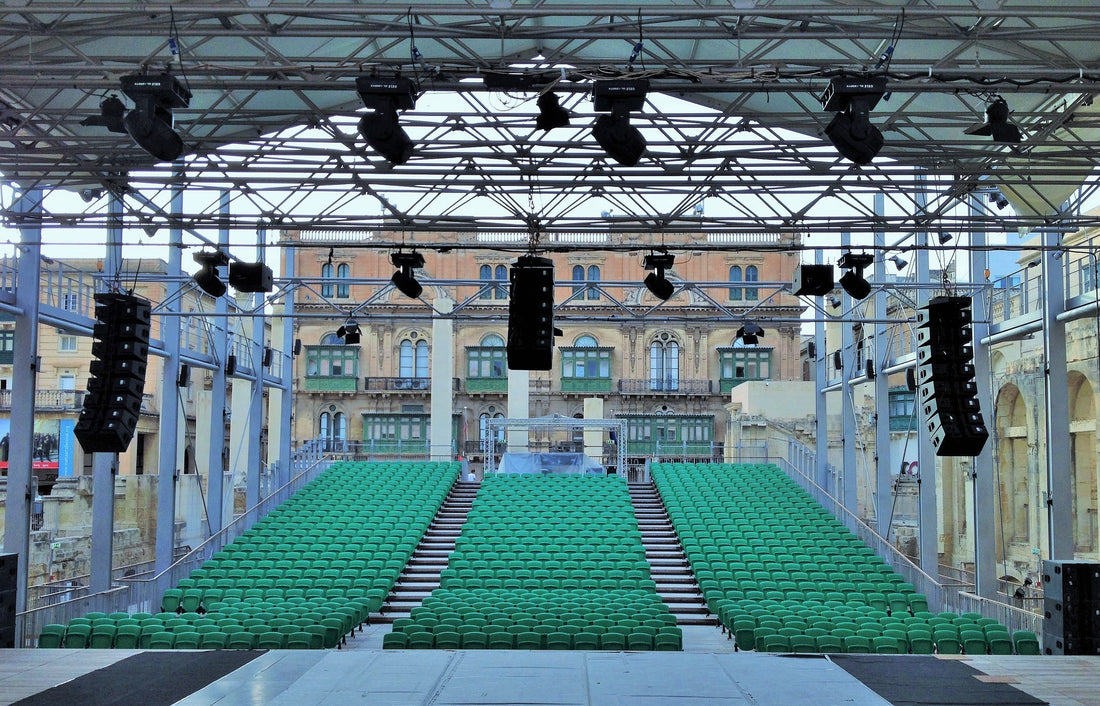When it comes to organizing a small event, sound quality can make or break the experience. Whether you're planning an intimate wedding, a corporate gathering, or a cozy concert, it's crucial to make the right choices for your audio setup. Based in Dubai, Soundtribe specializes in audio equipment rentals for all kinds of events.
In this blog post, we aim to guide you through the essential differences between passive speakers and active speakers, so you can determine which option best fits your event's needs.
What Are Passive Speakers?
Key Features:
- External Amplification: Passive speakers require an external amplifier to power them.
- Customizable: With the freedom to select your amplifier, you have greater control over the sound quality.
- Budget-Friendly: Generally less expensive upfront, passive speakers can be a cost-effective choice for certain setups.
Pros:
- Flexibility: You can tailor the amplifier and other components to your exact needs.
- Upgradability: Easy to upgrade individual components, such as cables, mixers, or the amplifier itself.
- Lower Initial Cost: If you already own an amplifier, going for passive speakers can save you money upfront. However, a typical DJ will not be carrying around their own amplifiers right?
Cons:
- Complexity: Requires a deeper understanding of audio setups, including impedance and power ratings.
- More Cables: With an external amp, expect a more complicated setup and takedown process. Wouldn't it be easier to walk into a boat with 2 pieces of equipment instead of 3?
What Are Active Speakers?
Key Features:
- Built-in Amplifier: Active speakers come with an internal amplifier, simplifying the setup process.
- Plug-and-Play: Easier to set up, requiring fewer cables and no separate amplifier.
- Consistency: The built-in amplifier is tailored to the speaker, ensuring consistent sound quality.
Pros:
- Ease of Use: Generally plug-and-play, making it ideal for people without technical audio expertise. This makes set ups easier when short on time such as on yacht events in Dubai, or weddings in which a set up has to be taken down fast for the next wedding that will use the ballroom.
- Portability: Fewer components make active speakers more portable and quicker to set up.
- Simplified Troubleshooting: With fewer pieces to the puzzle, identifying issues can be more straightforward.
Cons:
- Cost: Typically more expensive upfront due to the built-in amplifier.
- Less Customizable: The internal amplifier limits your ability to tweak the sound settings to your liking.
Which is Best for Small Events?
When it comes to small events in Dubai and the surrounding areas, Soundtribe generally recommends active speakers for the following reasons:
- Ease of Use: Most small events don't have a dedicated audio technician. Active speakers make it simple to get up and running quickly.
- Space-Saving: In a cramped venue or a cozy setting, the fewer components and cables, the better.
- Quality: With the amplifier and speaker designed to work together, you’re often guaranteed good sound quality without needing to be an expert and without the need to master a mixer.
However, if you're an audiophile or a sound engineer setting up a concert & looking to fine-tune your audio environment, the customizability of passive speakers might suit your needs better.
Conclusion
Choosing between passive and active speakers comes down to your specific needs, expertise, and the nature of the event. For most small events, active speakers offer the convenience and quality that make them an ideal choice. For those in Dubai or the surrounding regions, Soundtribe is your go-to resource for audio equipment rentals, including both passive and active speakers.
Looking for reliable audio equipment rental in Dubai? Soundtribe has you covered! Contact us today for customized solutions for your next event.

